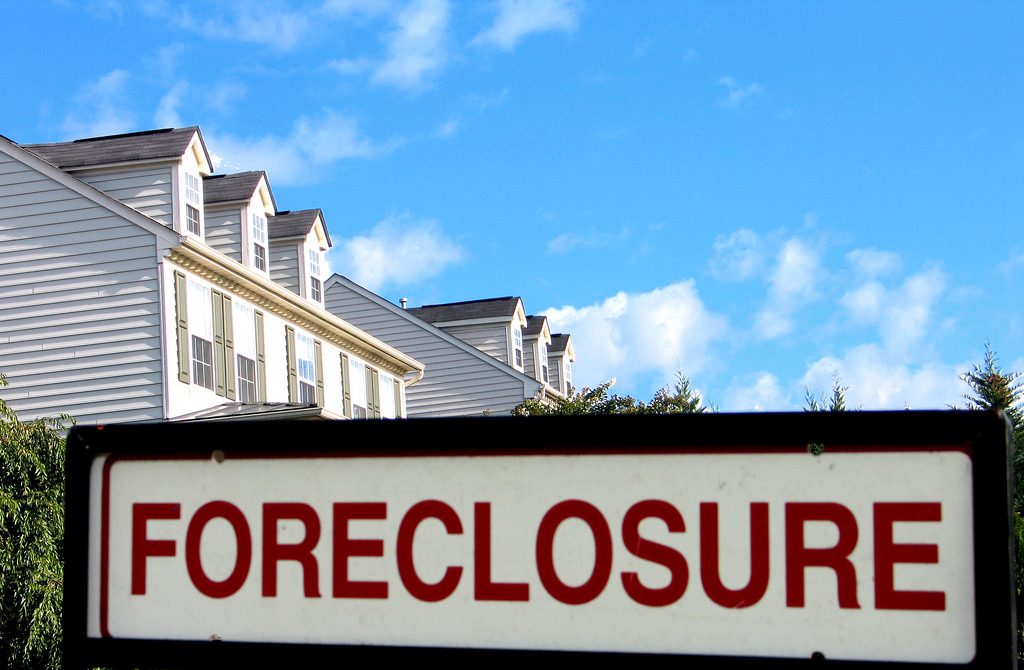Despite recent improvements to the housing market, there are still homeowner’s facing the uncertainty of foreclosure. Whether teetering on the edge of delinquent payments or named as the defendant in a court filing, most of these homeowners are desperate to resolve their financial situations as quickly and as painlessly as possible. While there are legitimate programs available to assist homeowners in their endeavors to keep their home, there are many nefarious people and companies that are looking to take advantage of unsuspecting and eager people. What are some of the most common foreclosure rescue scams and how can you identify them?
“We’ll Do The Leg Work For You”
Each mortgage company has what is called a loss mitigation department. This department is in charge of taking and reviewing applications for programs such a loan modifications, repayment plans, and short sales. It can be a long and time consuming effort to apply and follow up for the status of your application. Many scams will guarantee that you will receive a faster and favorable results if you hire them to do the leg work for you. Once you sign their contract and pay their fees, you’re unlikely to hear from them again or get an excuse as to why the process is taking so long. When you contact the mortgage company to find out the status yourself, they most likely won’t have a record of ever receiving your initial application or any communication from the company who scammed you. There are numerous versions of this scam. Some claim to help you apply for HARP or HAMP both of which you can also apply for by yourself.
“Rent From Us”
The premise behind this scam is the owner in foreclosure deeds the house over to the scammer with the idea that the scammer will be able to qualify for a mortgage that the original homeowner can afford. The original homeowner then rents the house from the scammer with the goal of buying the house back within a set time frame. The scammer drafts an agreement with terms heavily in favor of the scammer and almost impossible for the original homeowner to ever fulfill. If the original homeowner is unable to fulfill their obligations under the agreement they are then evicted from the house and lose any equity they may have had in the home. Other times the scammer will simply default on the new mortgage made to “buy” the house and the original homeowner is evicted after the foreclosure on the second mortgage is completed.
“Let’s Find a Loop Hole”
Several years after the initial mortgage crisis, there was a lot of talk about predatory lending practices. There were several counter suits brought by homeowners being sued for foreclosure that argued the mortgage company took advantage of the borrower or lied to them outright. The Courts found in favor of several of these borrowers. With the idea that there were loop holes to be found to get out of foreclosure or even cancel the mortgage altogether, the audit scam was born. In this instance, the scammer asks for a fee to review all of your closing documents to determine if they can find conflicting information, even a missed signature that they will claim can be argued for predatory lending and stop the foreclosure, some even goes so far as to say they can have your mortgage cancelled. While it would seem that easy, it’s not. These types of legitimate claims need to have egregious evidence and take several years to work their way through the court system, which will cost thousands of dollars a homeowner doesn’t have without any guarantee that the Court will find in their favor.
“Just Sign This”
The scariest and arguably the easiest to pull off is what’s considered a “bait and switch” scam. The scammer will present themselves as someone who will help the homeowner resolve their foreclosure with the bank. All the homeowner needs to do is sign a few forms, usually with the intention to make a new mortgage that will pay the old one off. Buried within those forms, however, is a document that titles the property over to the scammer. Not only is the original homeowner still being sued for foreclosure but they also are now out of a home. This type of scam involves a high level of fraud and many complete their scam by making fraudulent mortgages against the property.
When it comes to identifying foreclosure rescue scams the best advice is: Trust your gut.
If it seems to easy, it probably is. Always read every document you are asked to sign and don’t sign it until you understand every item detailed in the document. Never stop paying your mortgage on the advice of anyone and never make your payments to a third party with the guarantee that the payments will be held in escrow or made on your behalf. If someone is promising you guaranteed results or the mortgage company will only speak with “licensed” parties, they’re lying. Most mortgage companies want to keep the borrowers in the house. A foreclosure suit and owning a home after a completed foreclosure is an expensive situation for the mortgage company. Their staff members are trained to guide borrowers through the loss mitigation process and don’t require that you be represented by an attorney or a third party. Finally, any fees charged by legitimate third party companies are collected at the end of the process. If a company is attempting to collect from you upfront, it should be a red flag to cease communication from them.
